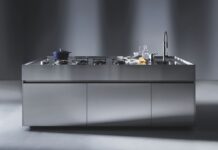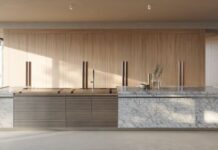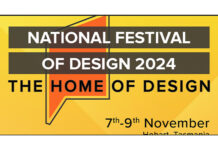 There are times when you read some really awful editorial commentary – this isn’t one of them. I haven’t met Richard Moss (yet) but when and if I do – I know I will enjoy the conversation. This is taken from our friends at kbbreview published last week and it raises some very pertinent points.
There are times when you read some really awful editorial commentary – this isn’t one of them. I haven’t met Richard Moss (yet) but when and if I do – I know I will enjoy the conversation. This is taken from our friends at kbbreview published last week and it raises some very pertinent points.
“Richard Moss, head of communications at Mark Wilkinson Furniture, questions the German message of efficiency and asks, is that what we really want from our kitchens, or something warmer and sexier offered by the UK?
I love the ‘them versus us’ stuff that has been appearing in the pages of kbbreview recently. Is it better for the British public to buy British, or is it really a no-brainer to buy German? When it comes to the style, build quality and sheer ‘soul’ of the final installation, and the job it does for the homeowners’ family, it has to be British.
I mean, what would you rather have – the oldest and meanest offering, or a wonderfully warm and modern solution that oozes relaxation, status and style?
German manufacturers in many fields try to get us to believe that they are the best in the world in terms of technology and efficiency, as if those two characteristics were the most important thing to aim for. They aren’t.
One of the German car makers aimed their pistol at their foot many years ago and pulls the trigger regularly with their ‘Vorsprung Durch Technik’ slogan, which translates to the dry and dusty ‘Advancement through Technology’. Sounds like something a second-rate science teacher might say to a class of bored school kids.
It’s like trying to sell a sensual French perfume on ‘how efficiently you can unscrew its bottle-top’ rather than the ‘Buy Me and you are Bound to Pull’ message, which fragrance makers tend to favour. Can you imagine Chanel changing their ‘impossible to resist’ into ‘most efficient to twist’, a message which is about as sexy as a galvanised dustbin.
Just take a look at all the words that their own makers associate with German styles – be they cars or kitchens – efficiency (yawn), work triangle (sweat), minimalistic (the very least)… why do we let them pump such words into our brains? Where’s the fun in that?
Here’s a ‘did you know’? Did you know that the foundation design for German kitchens is much older than the typical British kitchen? The foundation design for German kitchens came in 1926… 89 years ago… with the Frankfurt Kitchen… designed to be efficient-to-make and easy to use, with the aim of getting house-wives out of the home quicker and into the factory.
And that is their admission, not mine. The Frankfurt Kitchen has even been on show in the V&A they are that old.
The similar foundation design for British kitchens is half-a-century younger and came in 1976, with the far more sociable English country kitchen, designed to be enjoyed and appreciated by keen cooks and to be shared with family and friends. With all sorts of not-necessarily-efficient inclusions, like islands, dressers, planked canopies, decorative mouldings and social seating, where there’s time for a chat, a scone and a cup of tea. Full of furniture finished in natural timbers, or contemporary paint colours, with a degree of hand-made imperfection, which is warm, welcoming, friendly – more likely to give its owner a hug, than speed her out of the door to a waiting workbench.
So do you want old and mean (89 and with the minimal to offer) or grown up and welcoming (39 and with as much detail as you want). As for UK sales, volumes most of the Germans are so far behind they can hardly make a line on the graph.
For contemporary high-gloss lacquers, look at Walthamstow’s Wrighton Kitchens and Nigel Walters, who were the leaders in that field. Vorsprung durch Tecknik or Unwind and Be Welcome – it is a no-brainer.”
Whilst this is definitely aimed at a strong pro British readership, there’s no doubt you could apply most of this to our market – any thoughts?


































